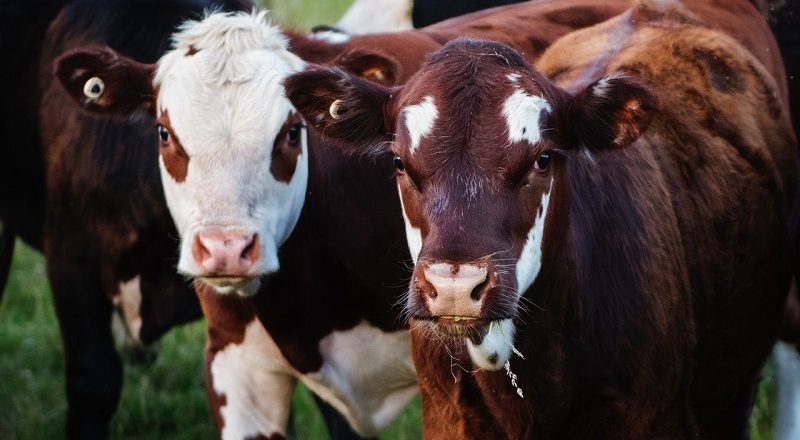
Methane from ruminants: initiatives to reduce it
To reduce methane emissions associated with meat and milk production, action is being taken on many fronts, including feed.
Cattle farms are considered to be among the main emitters of greenhouse gases. This is because ruminants release methane produced by the physiological mechanisms of digestion into the environment. Although, in reality, their contribution to climate change is not so great, there are many initiatives to act on the type of fodder and feed to reduce enteric methane generated by the fermentation of the fibres in grass and cereals by the microbes in the digestive system of ruminants.
Methane is 28 times more powerful than carbon dioxide, considering a 100-year time frame (GWP100), and it is responsible for almost a quarter of global warming. In Sweden, to tackle the problem of methane produced by ruminants, a pilot project called Lome, “Low on Methane”, which is low-methane beef, which can be purchased in some Swedish supermarkets, is being tested. The study started in early 2022, uses a 100% natural dietary supplement from Volta Greentech for cattle – one of the companies participating in the project – based on red alga Asparagopsis, grown on land.
As part of the study, the animals receive the supplement as part of their daily diet for three consecutive months before slaughter. The effectiveness of reducing methane emissions of cows fed with this supplement of red algae is linked to the dose and dosing program, and only after several tests was it possible to arrive at less than 92% of gas produced. When added to cattle feed, the supplement can limit the formation of gas in the rumen of animals without affecting their health, the taste of meat, the production or the quality of milk and cheese. Indeed, reducing the enteric synthesis of methane could give more energy for lactation, with advantages on dairy production.
In Sweden, to tackle the problem of #methane produced by ruminants, a pilot project called #Lome, Low on Methane, which is low-methane beef, which can be purchased in some Swedish supermarkets, is being tested. Click To TweetIn Sweden, the path seems already traced: to date, methane emissions related to the enteric fermentation of cattle account for 5.7% of the country’s total greenhouse gas emissions and constitute the majority of methane emissions. It is no coincidence that Sweden is among the 117 signatories of the Methane Pledge agreed last year at the COP26 in Glasgow, which set the target of a 30% reduction in methane by 2030. So, addressing gas emissions from cattle is a major challenge to achieving climate goals.
In Italy, too, something is moving, thanks to a product that is the result of a combination of natural substances, which can increase the production of meat and milk, reducing methane emissions into the atmosphere. It is called Anavrin and is a natural food supplement for ruminants that mixes essential oils, tannins and bioflavonoids specially selected to support and improve the function of the rumen.
Specifically, essential oils – geranium, tannins of chestnut, coriander – and an important component of bioflavonoids of the olive tree can find the ideal balance to reduce the production of methane by optimizing digestive efficiency and improving animal welfare because they reduce the pro-inflammatory state. Carbon Trust has officially validated the product. This international reference organization has recognized its ability to reduce emissions to ruminants based on the results of tests carried out in the laboratory and the stables.
In Italy the #Anavrin project is promising, it is a natural food #supplement for ruminants that mixes essential oils, tannins and bioflovanoids specifically selected to support and improve rumen function. Click To TweetThe experimentation in South America involved 450,000 heads analyzed by various Italian and international institutes – including the University of Sassari, the University of Milan, the Federal University of Santa Maria in Brazil and the University of Montevideo in Uruguay. The results showed that the use of the product by farmers (equal to 1 gram of additive per day per three hundred kilograms of animal’s live weight) might increase meat production in cattle between 70 and 80 grams daily and one and a half litres of milk. In addition, emissions in ruminants are reduced between 13 and 25%.
In conclusion, there is an increase in ruminant performance, lower dry matter intake, improved animal welfare, and a substantial reduction in methane released into the atmosphere.





